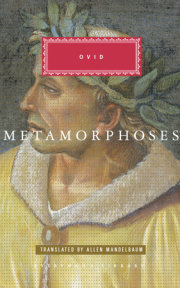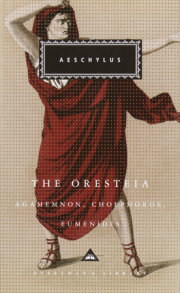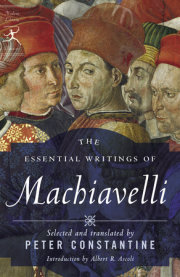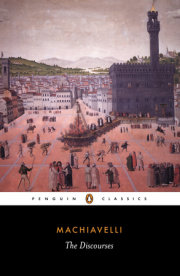Chapter 1
The Prince
The Kinds of Principalities and the Means by Which They Are Acquired
All states and all dominions that hold and have held power over men have been and are either republics or principalities. Principalities are either hereditary, in which case the family of the ruler has long been in power, or they are new. The new ones are either entirely new, as Milan was to Francesco Sforza,1 or they are, so to speak, members added to the hereditary possession of the prince who acquires them, as the Kingdom of Naples is to the King of Spain.2 The dominions thus acquired have been accustomed either to live under a prince or to be free; and they are acquired either by fortune or by ability.3
Chapter 2
Hereditary Principalities
I shall exclude any discussion of republics, having discussed them at length elsewhere.1 I shall consider principalities alone and, following the indicated plan, shall discuss how they may be governed and preserved.
I say, then, that hereditary states accustomed to the family of their ruler are more easily kept than new ones, because it is sufficient if the prince does not abandon the methods of his ancestors and proves adaptable when unforeseen events occur. In this way a prince of ordinary capability will always keep his state unless he is deprived of it by an exceptional or exceedingly powerful force. If he is once deprived of it, however, he will nevertheless regain it at the slightest adversity that the conqueror encounters.
In Italy we have the example of the Duke of Ferrara, who was able to sustain the assaults of the Venetians in 1484 and those of Pope Julius in 1510 for no other reason than that he had been long established in that dominion.2 The hereditary prince has less cause and less need to offend than a new one. Hence it follows that he is more readily loved. If unusual vices do not make him hated, it is reasonable to suppose that his subjects will feel a natural affection for him. Furthermore, one change always leaves dentations upon which to build another,3 but in a long and continuous rule the recollection of changes and of their causes tends to be forgotten.
Chapter 3
Mixed Principalities
In a new principality, however, there are difficulties. To begin with, if it is not entirely new, but an added member so to speak (the old and the new together being called a mixed principality), changes of authority come about from a natural hazard which exists in all new principalities: that is, from the willingness of men to change one lord for another, believing thus to improve their lot. For this reason they take arms against their ruler; but in this they deceive themselves, for experience will prove that they will actually have worsened their lot. This in turn will be the result of another common and natural necessity, for by the presence of his soldiers and by those other innumerable offenses that follow upon conquest, the new ruler must inevitably distress those over whom he establishes his rule. So it happens that he makes enemies of all those whom he has injured in occupying the new principality, and yet he cannot keep the friendship of those who have set him up; for he cannot satisfy them as they had expected and, since he is obligated to them, he cannot use strong medicine against them. Even if one has a very strong army, he will always need the good will of the inhabitants when entering a province. For these reasons Louis XII, King of France, quickly occupied Milan and quickly lost it. Ludovico's own forces were enough to take it from him the first time because those people who had opened the gates to the King, finding themselves deceived in their opinions and in their expectations, could not endure the irritations inflicted by their new ruler.1
It is indeed true, however, that after one has conquered a rebellious territory a second time, it will be less easily lost, for the ruler, using the rebellion as his excuse, will be the less reluctant to establish himself solidly by punishing defectors, uncovering suspects, and strengthening his position wherever it is weak. Therefore, to have the King of France lose Milan the first time, a Duke Ludovico threatening the borders was sufficient; to lose it a second time, the opposition of the whole world, together with the defeat and the expulsion of the King's army from Italy, was needed.2 This came about for the above-mentioned reasons. Nevertheless, he did lose it both the first and second time. The general reasons for the first loss have been treated. It remains to speak of the second, and to consider what remedies the King of France had and did not use, and what remedies another in the same situation could have availed himself of in order to keep such a conquest.
I say, therefore, that these conquered states which are joined to a state already long held by the conqueror may either belong to the same region and have the same language, or they may not. When they do, it is very easy to keep them, especially if they are not accustomed to freedom. To hold them securely, it is enough to have extinguished the line of princes who ruled them formerly and to maintain the pre-existent conditions. When there is no distinction of custom, men will live quietly, as happened in Burgundy, Brittany, Gascony, and Normandy, which have long been a part of France. Though there is some distinction of language among them, the customs are nevertheless alike, and the people can easily get along with each other. Anyone who conquers such territories and wishes to hold on to them must do two things: the first is to extinguish the ruling family; the second is to alter neither the laws nor the taxes. Thus in a short time they will become one with the conqueror's original possessions.
But when one acquires states in a province where the language, the customs, and the laws are different, there are difficulties; here both fortune and great ability are needed to keep them. One of the best and most ready solutions is for the new ruler to reside there. This expedient would make the new possession safer and more lasting, as it did for the Turk in the case of Greece.3 Despite all other measures taken to hold that state, he would have been unable to keep it unless he had gone there to live. Being on the spot, one may observe disorders as they arise and quell them quickly; not being present, one will learn about them only when they have assumed such proportions that they cannot be quelled. Moreover, the new province is not despoiled by the ruler's officials. The subjects are satisfied that they have ready recourse to the prince. Consequently, they have more reason to love him if they choose to be good, and more reason to fear him if they choose to behave otherwise. A foreign enemy, thinking of attacking such a state, would be likely to show more respect, for a resident prince could only be defeated with great difficulty.
The next best solution is to send colonies to one or two places which could serve to shackle that state. It is necessary either to do this or to keep a large force of cavalry and infantry there. Colonies do not cost much. Without expense, or with little, they may be sent out and maintained, and they will harm only those whose fields and houses they appropriate for their own use-a minimal part of the population. Those who are harmed, being dispersed and poor, can cause no trouble. All the rest, on the one hand, will be left unharmed (and hence should remain quiet); and, on the other hand, will be fearful lest by some wrongdoing the same that happened to those who were deprived should happen to them. To conclude, such colonies are not costly, are very loyal, and do little harm; those who are hurt, as already indicated, cannot annoy because they are poor and dispersed. At this point one may note that men must be either pampered or annihilated. They avenge light offenses; they cannot avenge severe ones; hence, the harm one does to a man must be such as to obviate any fear of revenge. In any case, by maintaining soldiers instead of colonies, a prince will spend much more, since he will have to use the entire revenue of the state to protect it. Thus the acquisition will become a loss. This method is also more harmful because it annoys the entire state as the troops are moved from one lodging to another. Everyone will feel the disruption and become an enemy-an enemy who can be troublesome because, though beaten, he is ever at home. From every point of view, therefore, this kind of protection is just as useless as colonies are useful.
Moreover, a prince who occupies a province which, as previously described, differs from his own, must become the leader and defender of the less powerful neighboring states and seek to weaken the more powerful among them. He must also be on guard lest by any chance some foreigner equal to him in power should enter them. Such an event always comes about through the help of discontented inhabitants who willingly admit a foreign power either through excessive ambition or through fear, as was the case with the Etolians, who admitted the Romans into Greece.4 So it was also with every province that the Romans entered: they were brought in by the inhabitants themselves. It is in the nature of things that as soon as a powerful foreigner enters a province, all the weaker powers in it will become his allies through envy of those who have been ruling over them. This is so true that, with respect to minor powers, the invader need do nothing at all to win them, for they will all willingly merge in the state which he has acquired. He has but to see to it that they do not gain too much strength and authority. With his own forces and their support, he can very early reduce the stronger powers and then become arbiter of the entire province. Any ruler who does not succeed in doing this will soon lose what he has won, or so long as he does manage to hold it, will have a host of difficulties and annoyances. The Romans very carefully observed this policy in the provinces they conquered. They sent out colonies; they protected the lesser powers without increasing their strength; they reduced those who were strong, and they did not permit powerful foreigners to gain a footing. Their conduct in Greece will suffice as an example: there the Romans protected the Achaeans and the Etolians, reduced the kingdom of the Macedonians, and expelled Antiochus. Nor did they ever reward the Achaeans and the Etolians by allowing them to enlarge their states, or allow Philip to persuade them to become his friends until they had weakened him.5 Nor did the power of Antiochus ever induce them to permit his keeping any part of Greece. In this instance the Romans did everything that wise princes should do who must have regard not only for existing disorders but for future ones as well, avoiding them with all possible diligence. By making provision in advance, princes may easily avoid such difficulties; but if they wait until they are near at hand, the medicine will not be in time, for by then the malady will have become incurable. In this matter the situation is the same as physicians report concerning hectic fever: in the beginning the disease is easy to cure but hard to diagnose; with the passage of time, having gone unrecognized and unmedicated, it becomes easy to diagnose but hard to cure. So it is with a state: when ills are recognized in advance (and only the prudent can do this), they are quickly cured. But when, having gone unrecognized, they are allowed to increase until everyone may recognize them, then remedy is no longer possible.
Thus the Romans, foreseeing difficulties, always remedied them. And they never allowed them to persist in order to avoid a war, for they knew that wars cannot be avoided and can only be deferred to the advantage of others. Therefore they chose to go to war against Philip and Antiochus in Greece in order to avoid having to deal with them in Italy. For the time, they could have avoided both dangers, but they chose not to. Nor were they ever pleased with the sort of advice that is always on the lips of our present-day wise men: that is, to enjoy the benefits of time.6 Instead, they were pleased to use their strength and prudence. For time bears all things out and may produce good as readily as evil, evil as readily as good.
But let us turn to France and consider whether she has done any of the things mentioned; and I will speak not of Charles but of Louis.7 Since Louis held possessions in Italy for a longer time, it is easier to examine his proceedings; and you will see that he did the contrary of what one should do in order to hold power in a state different from one's own.
King Louis was brought into Italy through the ambitions of the Venetians, who hoped by his coming to gain half of Lombardy.8 I do not mean to censure King Louis's decision in this matter, for having chosen to set foot in Italy and having no friends here-indeed, all gates being closed against him because of King Charles's conduct9-he was compelled to accept what friendship he could. This wise plan would have succeeded if he had not made errors in other matters. Having taken Lombardy, he quickly regained all the influence which Charles had lost: Genoa submitted, the Florentines became his allies; the Marquis of Mantua, the Duke of Ferrara, the Bentivogli, the Countess of Forlì, the Lords of Faenza, Pesaro, Rimini, Camerino, and Piombino, the Lucchese, Pisans, and Sienese-all came forward to offer their friendship. The Venetians could then wonder at the rashness of their decision. To acquire a couple of towns in Lombardy, they had made King Louis master over a third of Italy.
-- PrePress Department Westchester Book 7 Finance Drive Danbury CT 06810 Voice: 1-203-791-0080 Fax: 1-203-791-9286 e-mail: prepress@wbrt.com
Copyright © 1984 by Niccolo Machiavelli. All rights reserved. No part of this excerpt may be reproduced or reprinted without permission in writing from the publisher.









































































































